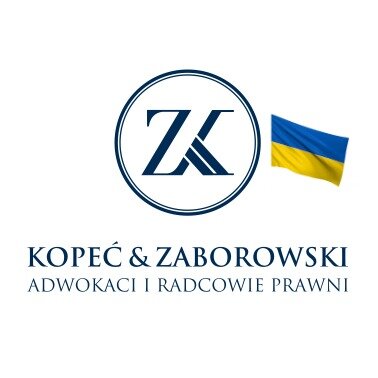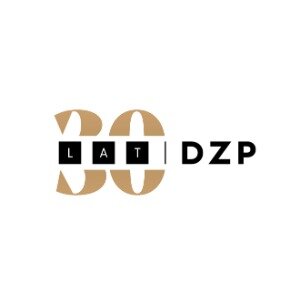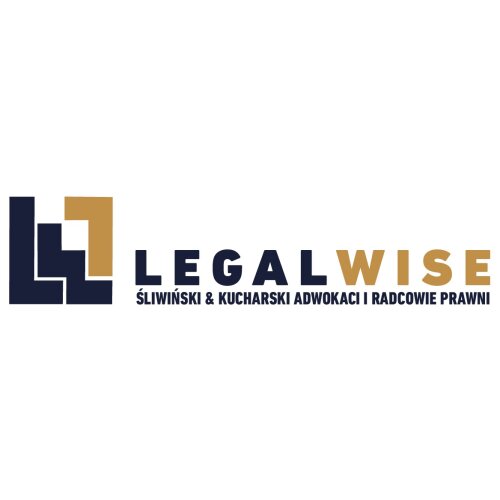Best Financial Services Regulation Lawyers in Warsaw
Share your needs with us, get contacted by law firms.
Free. Takes 2 min.
List of the best lawyers in Warsaw, Poland
About Financial Services Regulation Law in Warsaw, Poland
Financial Services Regulation in Warsaw, Poland, is a complex and evolving field designed to maintain the integrity and stability of the financial market. As the capital city, Warsaw serves as a central hub for financial activities, which necessitates stringent regulatory frameworks to govern various financial services, including banking, securities, and insurance. Polish regulatory authorities, such as the Polish Financial Supervision Authority (KNF), ensure compliance with both national legislation and European Union directives. Legal practitioners specializing in this field work to assist businesses and individuals in navigating these regulations, ensuring compliance, and addressing legal disputes.
Why You May Need a Lawyer
There are several reasons why someone might seek legal assistance in financial services regulation. Common scenarios include businesses requiring guidance on compliance with the local and EU financial regulations, individuals facing disputes with financial institutions, or companies involved in mergers and acquisitions needing expertise on regulatory requirements. Additionally, firms launching new financial products might need legal advice on regulatory approvals, and investors may seek legal counsel to conduct thorough due diligence or resolve issues related to securities transactions.
Local Laws Overview
The primary legislation regulating financial services in Warsaw includes the Banking Law Act, the Act on Trading in Financial Instruments, and the Insurance Distribution Act. These laws set the foundation for activities such as banking operations, investment services, and insurance distribution. Furthermore, the financial sector is heavily influenced by EU directives, including MiFID II, AMLD, and GDPR. Compliance with these laws is critical for financial institutions, as it governs the licensing requirements, consumer protection measures, and anti-money laundering procedures.
Frequently Asked Questions
1. What is the Polish Financial Supervision Authority (KNF)?
The KNF is the main regulatory body overseeing financial institutions in Poland. It ensures the stability and security of the financial market by supervising banks, insurance companies, investment firms, and other financial entities.
2. What are the penalties for non-compliance with financial regulations in Poland?
Penalties can range from fines and restrictions on business activities to revocation of licenses and legal actions against the institution or individuals responsible for the non-compliance.
3. Do Polish financial regulations apply to foreign companies?
Yes, foreign companies providing financial services in Poland must comply with local regulations and may also have to adhere to additional EU directives.
4. How does Poland implement EU financial directives?
Poland incorporates EU financial directives through national laws, ensuring harmonization with EU standards while addressing local market specifics.
5. What role does the EU's MiFID II play in Poland?
MiFID II impacts how investment services are provided, increasing transparency and investor protection. Polish institutions need to comply with its regulations.
6. Can I seek legal advice for cross-border financial transactions?
Yes, many law firms specialize in cross-border transactions and can provide expert advice on compliance and regulatory issues affecting international financial operations.
7. How do GDPR regulations affect financial services in Poland?
GDPR has significant implications for data protection within financial services, requiring stringent data management practices to ensure the privacy and protection of client information.
8. What is the process for obtaining a financial services license in Poland?
The process involves submitting an application to the KNF, which includes demonstrating compliance with legal, financial, and operational requirements as set out by Polish law.
9. Are cryptocurrency transactions regulated in Poland?
Cryptocurrency transactions are subject to Polish taxation and anti-money laundering regulations, with continuing developments expected in this evolving legal area.
10. How can disputes with financial institutions be resolved?
Disputes can be resolved through negotiation, mediation, arbitration, or litigation, depending on the nature of the conflict and the agreements between the parties involved.
Additional Resources
For further assistance, individuals can refer to the Polish Financial Supervision Authority (KNF) for updates and guidelines on regulations. The Ministry of Finance and the Polish Bank Association also provide valuable insights. Engaging with specialized financial law firms or consulting groups can provide tailored legal advice based on specific needs.
Next Steps
If you require legal assistance in financial services regulation, begin by identifying your specific needs and seeking a law firm in Warsaw that specializes in financial services regulation. Many firms offer initial consultations, which can help you understand your situation better and plan your next steps. Consider preparing any relevant documents and a list of questions or concerns to maximize the efficiency of your legal consultation.
Lawzana helps you find the best lawyers and law firms in Warsaw through a curated and pre-screened list of qualified legal professionals. Our platform offers rankings and detailed profiles of attorneys and law firms, allowing you to compare based on practice areas, including Financial Services Regulation, experience, and client feedback.
Each profile includes a description of the firm's areas of practice, client reviews, team members and partners, year of establishment, spoken languages, office locations, contact information, social media presence, and any published articles or resources. Most firms on our platform speak English and are experienced in both local and international legal matters.
Get a quote from top-rated law firms in Warsaw, Poland — quickly, securely, and without unnecessary hassle.
Disclaimer:
The information provided on this page is for general informational purposes only and does not constitute legal advice. While we strive to ensure the accuracy and relevance of the content, legal information may change over time, and interpretations of the law can vary. You should always consult with a qualified legal professional for advice specific to your situation.
We disclaim all liability for actions taken or not taken based on the content of this page. If you believe any information is incorrect or outdated, please contact us, and we will review and update it where appropriate.

















